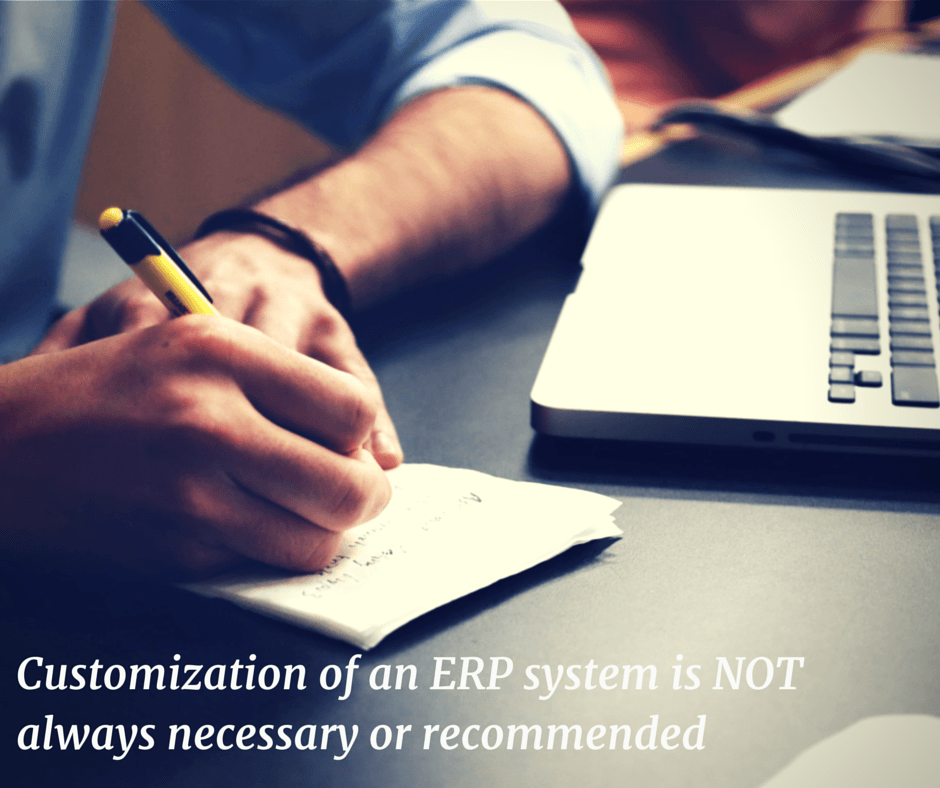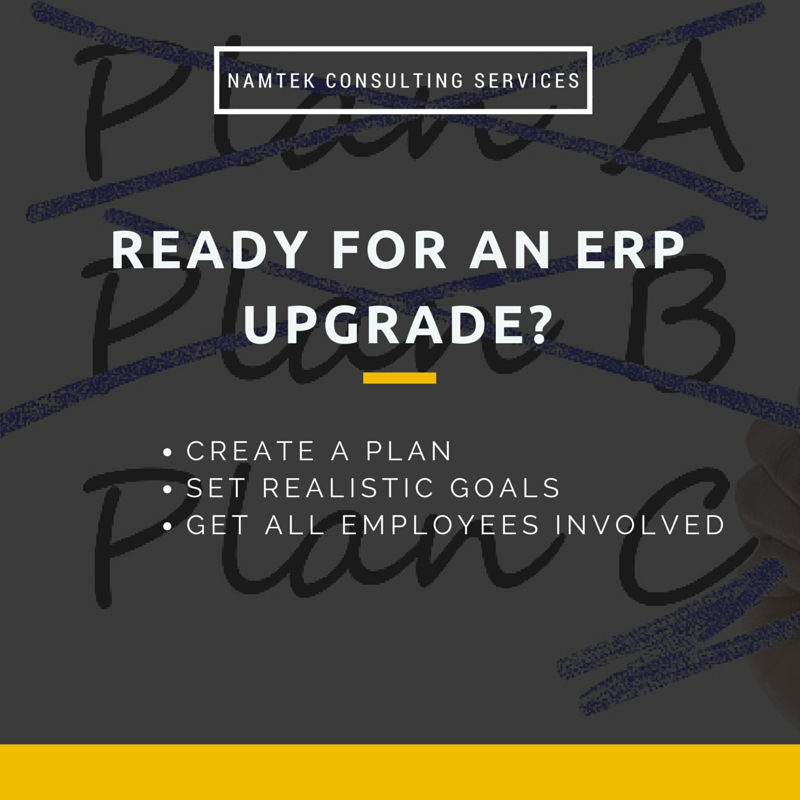 It’s quite common for businesses to implement an ERP system that has been tweaked for their company. In other words, customization of ERP systems is normal. However, is it the best thing to do for your solution as well as for your business? Read more
It’s quite common for businesses to implement an ERP system that has been tweaked for their company. In other words, customization of ERP systems is normal. However, is it the best thing to do for your solution as well as for your business? Read more
Posts
 A business should always be prepared for an emergency or unexpected disruption. It’s about being proactive and not taking any chances when it comes to the survival of your business. A Business Continuity plan will allow you to allocate the necessary financial and human resources it takes to keep a business running in case of a disaster. This will ensure your customers are being served and demands are being met even if an unexpected event occurs at the office. Read more
A business should always be prepared for an emergency or unexpected disruption. It’s about being proactive and not taking any chances when it comes to the survival of your business. A Business Continuity plan will allow you to allocate the necessary financial and human resources it takes to keep a business running in case of a disaster. This will ensure your customers are being served and demands are being met even if an unexpected event occurs at the office. Read more
 There are many steps involved in an ERP implementation at a company. However, first and foremost it’s important for the management team to decide if their company is even ready for such a large project to undertake. Most business people seem to only believe that it requires a lot of financial resources and the rest is up to the IT team; this is false. Nowadays, Software as a Service (SaaS) and cloud computing has allowed ERP implementations to be done at an affordable cost. What these managers don’t realize is that an IT project like this requires enough resources, financial and personnel, and capabilities to successfully complete an ERP implementation. Read more
There are many steps involved in an ERP implementation at a company. However, first and foremost it’s important for the management team to decide if their company is even ready for such a large project to undertake. Most business people seem to only believe that it requires a lot of financial resources and the rest is up to the IT team; this is false. Nowadays, Software as a Service (SaaS) and cloud computing has allowed ERP implementations to be done at an affordable cost. What these managers don’t realize is that an IT project like this requires enough resources, financial and personnel, and capabilities to successfully complete an ERP implementation. Read more
An ERP Implementation phase is typically the time period in which mistakes happen and panic and fear begin to creep up amongst business executives and employees. Often times, we hear nightmarish stories about IT implementations; either because the implementation went over-budget, above and beyond the expected timeframe or it was too complex and quickly resisted by the company employees.
In today’s article, we will share 4 mistakes that should be avoided in order to have a successful ERP implementation. Read more
Check out the infographic below on the positive effects that IT software solutions have on customer experiences. Read more
There comes a time when you realize your business needs more in terms of software. Perhaps so far your team has been using many separate smaller software systems for each different department; one system for Accounting, one for Sales (CRM), etc. However, as the company begins to grow, it’s time to implement one integrated system for the entire company. In that case, employees will be able to communicate with each other and work with the same real-time data. Business processes will be streamlined and many tasks will be automated. Read more
Check out another infographic created by our Team at NAMTEK Consulting Services on a fully integrated ERP software suite. Read more
What exactly is ERP and why is it so valuable?
ERP Definition = ERP stands for Enterprise Resource Planning, which is a fully integrated software suite. It allows users to view, manage and track core business processes and resources using one single database, all in real-time. Read more
IT Software Implementation
IT Software Implementation is a crucial step in improving an organization’s processes. This article explores the different stages and best practices required for a successful implementation. Discover how to effectively plan, prepare, deploy, and maintain software while minimizing operational disruptions. Maximize your company’s potential by establishing robust processes and fully leveraging the software’s functionalities.
One of the biggest challenges a company faces during an IT implementation project is having all employees (aka users of the new system) accept that change is coming. Many employees get used to doing specific tasks the same way each time. At a certain point in time, these tasks become habit. The implementation of a new software system, like an ERP solution, basically forces these employees to break their habits by completing their tasks and projects a different way, albeit more efficiently. Read more
Many business people are unaware of the difference an integrated ERP system can do for their business processes, employee productivity and cost savings. It’s understandable since a few years ago, these systems were costing enterprises hundreds of thousands of dollars and were only used at large corporations. At that point, SME executives decided to use many separate out-of-the-box systems for different functions or departments. Unknowingly, this way of doing business isn’t the most efficient. At first it may seem like it’s less expensive but in the long run, it will cost your company way more in errors, inefficiencies, manual data entry, lack of easy data access and lack of reporting, etc. This makes it very difficult to stay ahead of the game, outperform your competitors and provide excellent customer service. Read more
CONTACT US
400 Blvd Curé-Labelle, #304 Laval QC H7V 2S7 Canada
Phone: +1 450-681-3009
Email: support@namtek.ca
Website: https://www.namtek.ca/
Latest Blog Posts
 Trusted Canadian IT Partner for 25 Years: Namtek Consulting ServicesMay 29, 2025 - 9:04 pm
Trusted Canadian IT Partner for 25 Years: Namtek Consulting ServicesMay 29, 2025 - 9:04 pm The Complete Guide to Grants Management Software: From Features to SelectionMarch 17, 2025 - 5:37 pm
The Complete Guide to Grants Management Software: From Features to SelectionMarch 17, 2025 - 5:37 pm AMFQ IT Modernization Case Study: Upgrading Legacy Systems with Magic xpaFebruary 27, 2025 - 8:10 pm
AMFQ IT Modernization Case Study: Upgrading Legacy Systems with Magic xpaFebruary 27, 2025 - 8:10 pm
NEWSLETTER
Subscribe today to our Newsletter in order to stay up-to-date with all company news and events.

